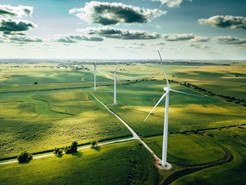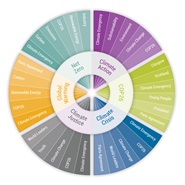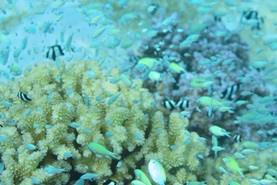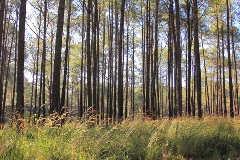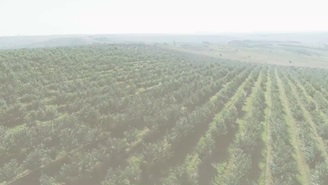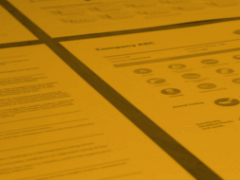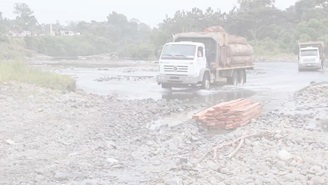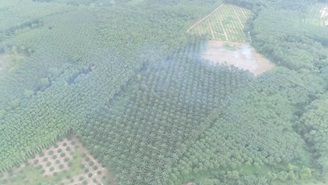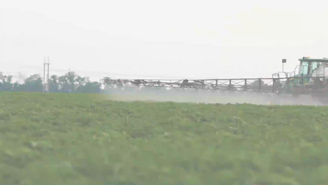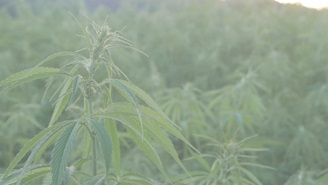5 Sustainability Themes to Expect in 2022
As we enter 2022, it struck me that VUCA--a concept that originated in the mid-1980s at the U.S. Army War College to describe the volatility, uncertainty, complexity, and ambiguity of the world after the Cold War—is still a useful framework to think of where we are now.
COP 26: A Spotlight on Emerging Climate Action Themes for Investors
Reactions to the COP26 Conference and the resulting Glasgow Climate Pact have predictably run the gamut from claims of greenwashing to the celebration of progress in the fight against climate change. Ultimately, any judgement on COP26 may be premature, as the success of the conference will best be measured in time by the extent to which commitments made are put into motion. While we wait to see the concrete actions that materialize, the past two weeks have underscored the importance of several themes that will garner increasing attention and should be considered by sustainable investors.
Momentum Around Principal Adverse Impact Data Remains Strong Despite SFDR Delays
Despite the shifting timelines, we observe that the market momentum around PAIs is not diminishing, quite the contrary. Investors in the scope of the regulation are using the fourth quarter of this year to get acquainted with PAI data and set up their systems. Most investors we speak with want to be prepared in time to be able to monitor PAIs throughout 2022 and adjust their portfolios to boost their PAIs (or rather limit the downside, as these are adverse impact indicators). This means that PAIs may significantly impact stock selection and portfolio construction by fund managers keen to have ‘good’ PAI scores.
Biodiversity: A Crisis Equaling, Possibly Exceeding, Climate Change
According to the UN’s Convention on Biological Diversity the main drivers of biodiversity loss are habitat loss and degradation, climate change, pollution, over-exploitation, and invasive species. Habitat loss is directly linked to the conversion of natural ecosystems to agricultural lands and unsustainable use of water resources.
North American Material Risk Engagement Trends: ESG Reporting Frameworks, Emission Reduction Targets and Beyond
There are many factors that rating agencies consider within its overall assessment. For example, ESG rating companies tend to look for at least three years of ESG metrics to determine company trends and long-term ESG targets, goals, and strategies to manage and reduce ESG risks at least five years ahead. Read on to learn about how Sustainalytics' Material Risk Engagement program promotes and protects long-term value by engaging with high-risk companies on financially-material ESG issues. (A North American Snapshot)
Using Systems Thinking to Avoid ESG Investing Blind Spots
For investors looking to enhance ESG risk management and the long-term impact of sustainability efforts, a systemic approach can help identify interventions that will most effectively mitigate the risk of negative outcomes or divert the chain of events towards a more sustainable trajectory. Typically, this involves moving from single-issue or company-specific tactics to progressively integrate system-level considerations in ESG strategies. Targeting systemic change through active ownership is one way to acknowledge and start unravelling the dynamic web of global challenges.
Deforestation and Biodiversity Loss Highlight the Need for a Better Normal
The world is aching for a return to normality after a year (and still counting) of news bulletins being dominated by the COVID-19 pandemic; Earth Day 2021 should serve as a stark reminder that we cannot go back to business-as-usual. We must address the vast environmental challenges facing humanity, such as climate change, loss of biodiversity, extreme weather and issues related to water.
Mirova: Food Security - Closing the Food Gap
Solutions for closing the food gap are likely to come from both production innovations and changes in consumption trends: on the one hand, it is essential that we increase the supply of food, while on the other, there is real potential for a reduction in demand for certain commodities.
Chilean Aquaculture: Expansion into Troubled Waters?
In November 2019, as part of the Sustainable Seafood Engagement, Sustainalytics visited Chile to learn more about the country’s rapidly growing aquaculture industry. Commercial salmon farming has developed quickly in Chile over the past two decades, and today the country is the second largest producer of seafood in the world. Although salmon is not a native species to Chile, the climate in the southern part of the country (zones 10 and 11) offers excellent conditions for farming activities. Farmed salmon now represents the country’s second largest export and the industry provides thousands of jobs for people living in some of Chile’s most remote communities.[i] Despite this economic success story, the industry also faces environmental and social challenges which may cause investor risk. These risks may become more pronounced in the future, as the sector now looks to expand deeper into biodiversity hotspots.
Brazil: Deforestation in the Global Context - Part 2
In our previous blog post, we detailed the impact that the new Brazilian government’s policies have had on deforestation and could have on Brazil’s Indigenous Peoples. In this second article, we will explore how material recent developments in Brazil could be for the companies, communities and financial institutions involved. We will also take a closer look at Brazilian meat processing company JBS SA (JBS) and the consequences it may face due to international concern over deforestation.
The fairy-tale of Faroese fish farming
Aquaculture is the fastest growing food production sector in the past 20 years. It will become vital in meeting the rapidly increasing demand for seafood, and is expected to provide 50 per cent of total seafood consumed in the coming years.[i] Contributing to an increased protein supply and global food security, aquaculture also carries many risks. These risks include the potential spread of diseases and parasites, use of antibiotics and pesticides, and the escape of fish from fish farms which can jeopardize wild populations.
Brazil: Deforestation in the Global Context
On January 1, 2019, Jair Bolsonaro began his tenure as the president of Brazil. On his first day in office, he signed several decrees aimed at increasing power for the Ministry of Agriculture, at the expense of the Ministry of Environment. According to NGOs, this indicates a shift in government priorities away from environmental stewardship and protection of Indigenous rights towards bolstering the agricultural industry’s interests.
Palm Oil and Deforestation: a missed window of opportunity for the RSPO?
In August 2018, 90 institutional investors representing USD 6.7 trillion in assets sent a letter to the Roundtable on Sustainable Palm Oil (RSPO) expressing their concern over deforestation and the disconnect between leading corporate policy commitments and the RSPO standards.
Glyphosate and Non-Selective Herbicides – Are companies managing regulatory risks?
On 10th August 2018, Monsanto (acquired by Bayer in June 2018) was ordered to pay USD 289 million in damages, in the first lawsuit alleging the herbicide glyphosate causes cancer to go to trial in the US. As of July 2018, the number of outstanding lawsuits related to glyphosate reported by Bayer had jumped to 8,000.

